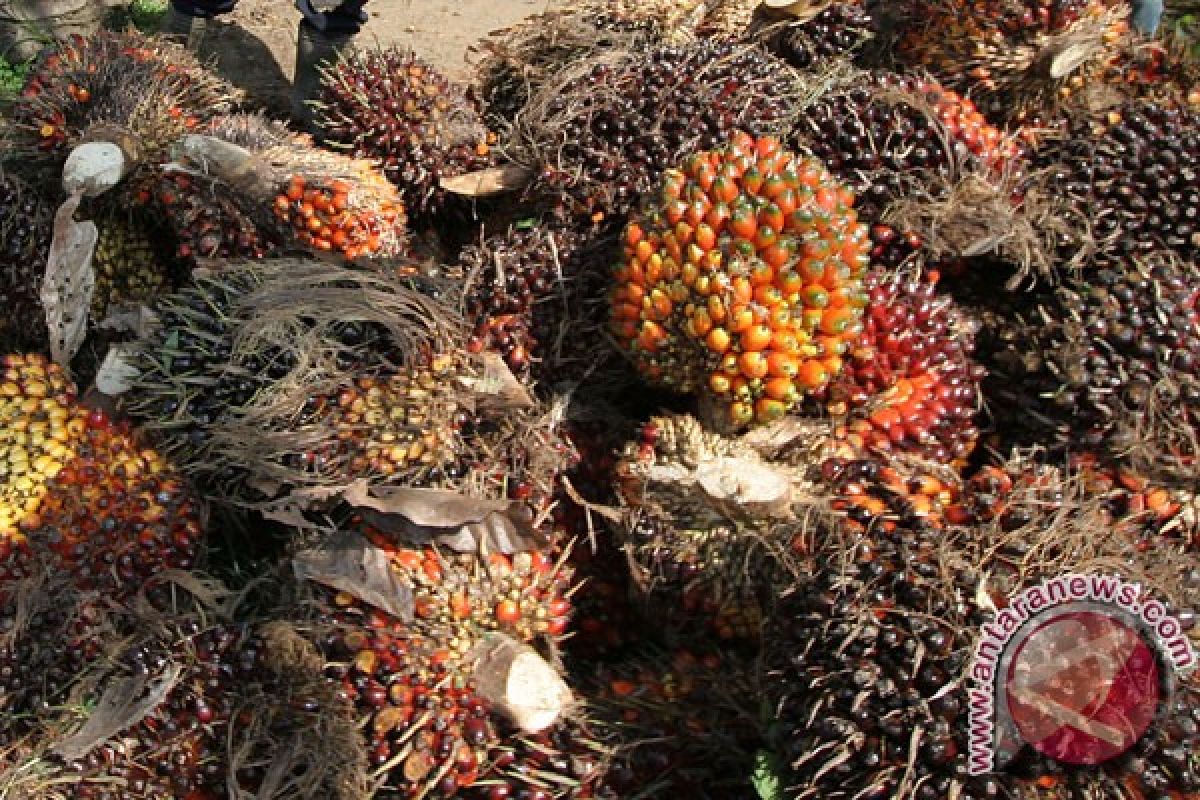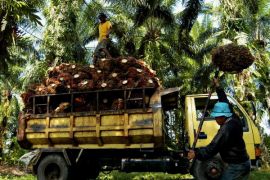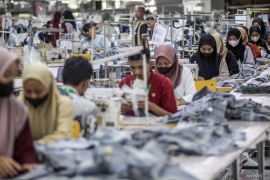"Apindo has asked the government to review its moratorium agreement."Medan, North Sumatra (ANTARA News) - Indonesia`s crude palm oil production in 2013 is estimated to increase maximally by around 10 percent to 28 million tons, according to Derom Bangun.
The chairman of the Indonesia Palm Oil Council said here on Thursday "this year`s production is predicted to reach only around 25.5 tons."
He admitted it would be difficult to increase the production above 10 percent because in the past few years development of new plantations has been very small due to problems in procuring the land for it.
In addition to that efforts to develop oil palm plantations have also been hindered by various domestic and foreign government policies including oil palm moratorium, he said.
"Only in 1990-1995 could the national production increase up to 13 percent a year but after that production has never reached that level, due to land procurement problems" he said.
Bangun expressed concern over the situation as demand is expected to rise due to increasing needs driven by increasing population and industries.
However he hoped with the minimum hike in production the price would be up again.
"For next year, the price of palm oil is projected to remain low at around US$850 per ton or US$900 at the highest, driven by continuing global crisis," he said.
This year, the average selling price of CPO is expected to be around US$1000 per ton as until May the average price had reached US$1,000 per ton, he said.
The secretary of the North Sumatra chapter of the Association of Indonesian Employers (Apindo), Laksamana Adiyaksa, said demand for palm oil and its derivatives to Indonesia and especially North Sumatra, which is one of the country`s palm oil producing regions, has increased even from producing country like Malaysia and Africa.
"Apindo has asked the government to review its moratorium agreement and other policies hindering development of palm oil production and oil palm plantations," he said.
Apindo has also discussed the imposition of an export duty for CPO and the use of funds from the tax for supporting oil palm plantation developement, palm oil industries and exports.
"The palm oil market which is still wide open in the years to come must be taken advantage of by Indonesia," he said.
(Uu.H-YH/A014)
Editor: Priyambodo RH
Copyright © ANTARA 2012










